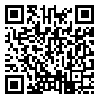BibTeX | RIS | EndNote | Medlars | ProCite | Reference Manager | RefWorks
Send citation to:
URL: http://jhc.mazums.ac.ir/article-1-200-en.html
Introduction and purpose: Despite the wide range of health benefits of physical activity, many people have a sedentary life style. Thus, it is necessary to conduct some interventions to promote physical activity. One of the most widely applied models in the field of exercise behavior is the Transtheoretical Model. In this study, we aimed to determine the effectiveness of an educational program based on the Transtheoretical model (TTM) to increase use of the processes of change for physical activity among the employees of Birjand universities. Methods: This quasi-experimental study was conducted on 76 employees of Birjand universities, who were divided into two groups of intervention and control. The data collection tool was a valid and reliable questionnaire including items on demographic variables, as well as stages and processes of change. The intervention group received three sessions of TTM-based intervention. The questionnaires were completed before, just after, and three months postintervention for the two groups. The data were analyzed by SPSS, version 16. Results: Immediately after the intervention, there was a significant difference between the case and control groups in terms of the mean scores of cognitive processes (i.e., dramatic relief, self-reevaluation, consciousness-raising, and environmental reevaluation) and behavioral processes (i.e., counterconditioning, stimulus control, and self-liberation). Furthermore, three months after the intervention, a significant increase was noted in the intervention group compared to the control group with respect to mean scores of cognitive processes (i.e., dramatic relief, consciousness-raising, environmental reevaluation, and self-reevaluation) and behavioral processes (helping relationships, contingency management, stimulus control, and self-liberation). Conclusion: Considering our results, TTM-based interventions targeting the processes of change can be effective in promoting physical activity behavior among employees.
| Rights and permissions | |
 |
This work is licensed under a Creative Commons Attribution-NonCommercial 4.0 International License. |






